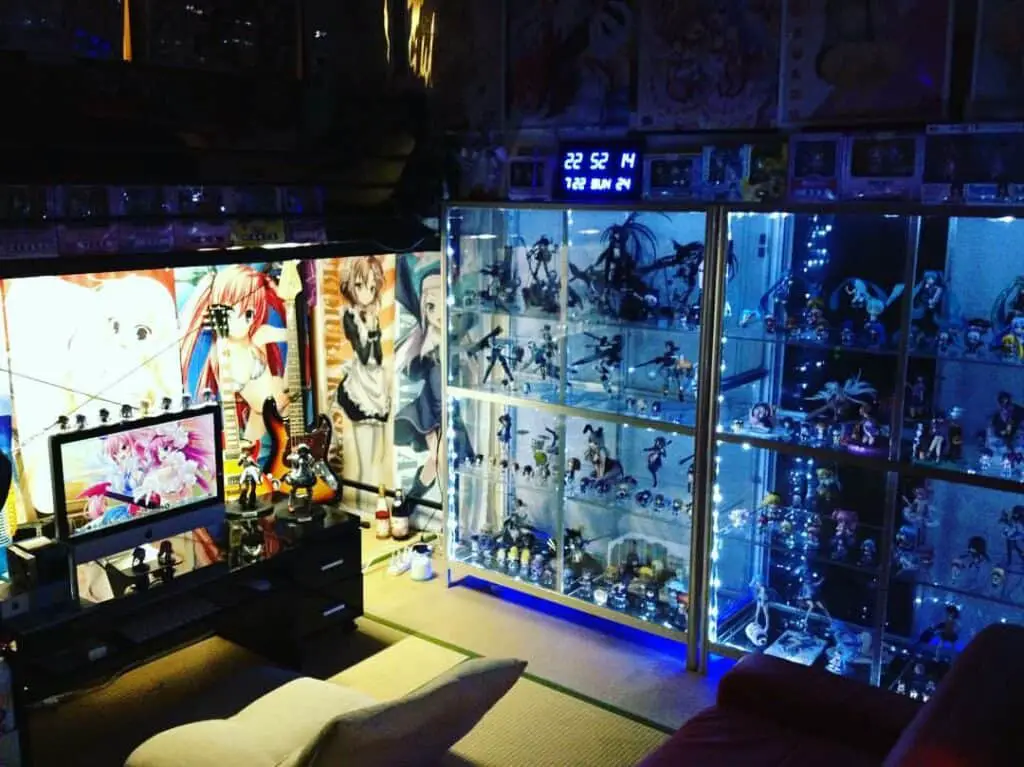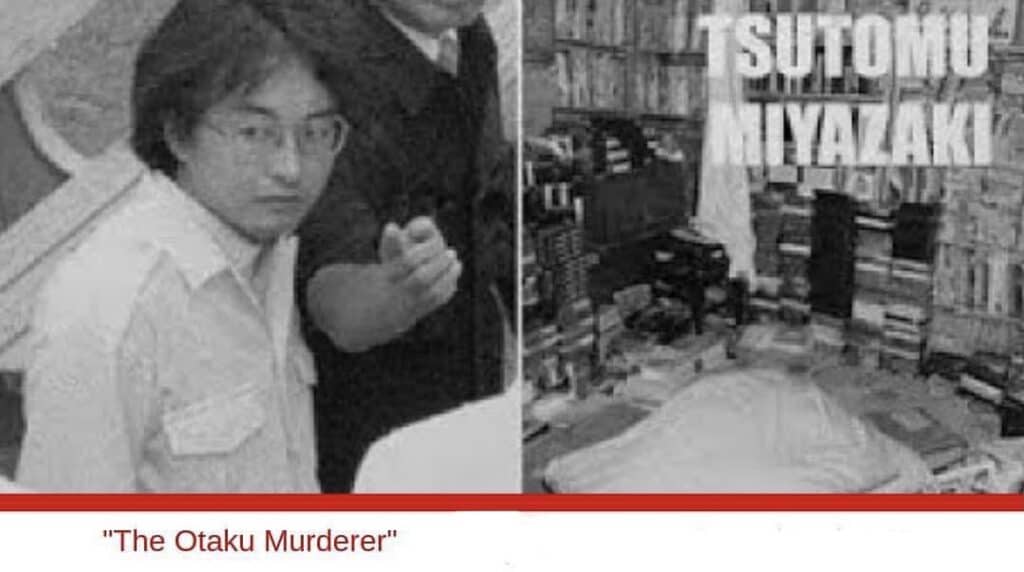Japan is a country that has been home to many different types of culture, and it’s no surprise that anime has grown into one of the largest industries in Japan.
What is an otaku in anime? An otaku in anime is a person who has obsessive interests in anime, manga, and video games. Otaku can be used as a noun or adjective. Otakus are passionate about their hobbies but they also have interests outside of those specific areas.
In the past, “Otaku” has been associated with negative connotations such as social withdrawal and excessive devotion to hobbies (i.e., “living life on the sidelines”). However, there are broader definitions that refer to all types of obsessions, including healthy ones like sports or cooking.


Otaku in Anime
Anime is an art form that has been around for over a century. Anime is also the Japanese term for animation, which means that it tells a story through pictures and sounds – usually in animated or hand-drawn form. This post will answer the question of what an otaku is to anime fans, but first let’s stop and take a closer look at this word.
Otaku can be translated as ‘a person who likes something so much they become obsessive about it’ or just simply ‘an enthusiastic fan of anime’.
Some would say that being an otaku can have negative connotations because some people think they are addicted to their hobby while others may find them socially awkward, preferring to stay inside all day watching their favorite shows instead of going out.
An otaku refers to someone who is obsessed with something or someone – in this case, they are obsessed with Japanese animation.
This can be seen as both a good thing and a bad thing depending on the person watching. Anime fans usually spend their time collecting merchandise, drawing fan art, creating videos, taking photos at conventions and cosplaying (dressing up like characters from their favorite shows).
Some people may not see these things as obsessive but rather creative ways of celebrating the show you love!
How Otaku Are Viewed In Japan
An “otaku” is well known in the Japanese culture, however, it is not something someone would normally like to be considered. In itself, “otaku” is a derogatory term, and it always has been since its formation. So, why is otaku such an offensive term, and who falls into that category?
The Japanese culture do not view otaku’s in high regard. In Japanese social culture, being exuberant about one’s hobbies or interests is frowned upon greatly. The normality is to be focused on your job, family, and social circles – nothing more.
An otaku is “an individual” who has a hobby that they spend more time, money, and effort on than normal individuals do. They know everything about their hobby, along with everything related to it, and are extremely open about it to anyone who will listen. This falls out of normality of Japanese society, leading anyone who identifies with the term otaku to be shunned, or judged greatly.
According to Japanese culture, otaku is reserved for use to only describe the elite of “nerds.” However, if you were to ask different Japanese individuals the definition of the word and who it describes, each one would probably tell you something different. The term is riddled with ambiguities – especially from the media and how it came into existence over time. That is why it is important to understand where the term came from, and how it has evolved.
Otaku: A History
During the beginning of anime and manga in the 1980’s, Japanese fans created a sort of fandom to connect with it. This in turn created a boom in clubs, conventions, cosplay, and social events. These shared interests created common ground between these individuals. However, in Japanese language, there is no right term for what they refer too as an “obsessive nerd.” Therefore, the term otaku was born as a collective saying for an individual who was obsessed with something – and over time, the term evolved into being obsessed with anything, but particularly a hobby. Although, it does still carry the broad meaning of an individual who is obsessed with anime and manga.
The term grew between individuals in the anime and manga fandom and was widely unknown to the rest of the country – or world – until a man named Nakamori Akio, who was a writer who was known for developing subculture, popularized the term. He used otaku to describe the fandom of convention goers in article for Manga Burikko magazine in 1983, and it was widespread shortly thereafter.

There is a long-held stereotype about otaku’s being antisocial, and this belief is still held true today. It was not until the last decade that the term appealed to individuals who were “nerds” but still social. Even if the otaku culture is changing, the stigma of the term will never disappear. Below, is a list of things that many native Japanese people think of when they hear the term:
- Otaku are a minority
- People who are not otaku cannot understand why otaku love anime characters
- People who are not otaku cannot understand why they enthuse about something
- They are weird
- Otaku people feel incomprehensible things
- Ugly/smelly
- Obsessed with anime
- Someone who does not have a life outside of their home
Now that you know what the origin and definition of this term is, you still may be intrigued to learn more about what makes an otaku an otaku. This link is to an encyclopedia that will cover all of your questions.
A lot of what otaku today stands, and why it is so derogatory, is because the otaku culture is a salve for being alone, and not having a life outside of your home – like not having a job, a social life, or relationships (romantic or otherwise.) This refers, in Japanese culture, as the young men who cannot hold a job, have piles of manga and hentai, and spend too much time online on message boards. In Japanese culture, it is offensive to them to hold mannerisms like these. If you enjoyed these activities, it was originally meant to be kept behind closed doors because social hierarchies and reputation is the most important part of their culture. Even late-night anime is broadcasted when most people are asleep so those hiding behind this term can watch it in secret.
There is also an exceptionally good reason to keep this secret, due to social obligations, which we will explore below.
The Otaku Murderer and How It Ties into The Stigma of Otaku

From 1988 to 1989, Tsutomu Miyazaki murdered four young girls in the Japanese providence of Saitama. He was the definition of a serial killer: he preserved body parts, and the nature of his crimes included necrophilia, vampirism, and cannibalism. Even though the nature of these killings were strange and ruthless, the media painted the picture of Tsutomu Miyazaki as an otaku due to his large collection of manga and anime. Even though he was not a true otaku, the murder suddenly became a social issue: the otaku culture was the problem. If the Japanese – or even worldly – people had not heard of the term before, they most certainly did now due to the media labels they put on this serial killer.
Even after the case died down, the media still stirred the stereotype. Suddenly, to the Japanese people, the term didn’t just label an individual who was obsessed with something – it referred to someone who lived in an imaginary world over their reality, and had a distinct trouble differentiating the two. Suddenly, otaku did not mean being obsessed with a hobby: it meant being obsessed with a hobby to the extent of being sick and valueless.
However, as time went on, the stigma related to being “sick” lessened, and individuals began to self-proclaim themselves as otaku. According to recent polls, more than 30% of Japanese individuals who identify as otaku say that their friends don’t know they identify as one, 40% of parents did not know their children were identifying as an otaku, and siblings also did not know. But, only 10% that responded in these polls said that no one knew about their otaku hobbies. But, there was a significant portion of the Japanese population that did not even know what otaku meant.
Below are the survey results when asked “What comes to mind when you hear the word otaku?” :
- Pants with a lot of pockets – this is a surprise as cargo pants are ubiquitous in Japan
- A recent jump in stylishness – some even argued in this answer that otaku make ideal dating partners
- Paper Shopping Bags – Supermarkets in Japan only use plastic bags, but anime shops have a reputation of putting purchases in long bags made of thick paper (not paper but close)
- Plaid shirts – these are also not a staple of Japanese style
- Bandanas – these are not a staple of Japanese style either
- An increasing number of girls – When otaku made into the Japanese vocabulary, it was widely known as just boys. However, once girls began to cosplay, play video games, and purchase anime and manga, the term became gender-neutral
- Backpacks – this was argued by saying that you only have two hands, and not enough space to hold anything else
- Someone who likes video games – this was argued due to the cross-promotion and merchandising that blurred the line between the love of video games, manga, and anime.
- Someone who likes manga – this is close, but it barely holds onto the spot for all the criteria to identify as an “otaku”
- They are entering their golden age – these people argued that being an otaku is nothing to be ashamed of
- Akihabara/Akiba – this is the worldwide term for all things anime, video game, and manga related. This term is not decretory in Japan.
- Someone with his or her own world – this is due to the widespread belief that otaku have a hard time distinguishing their own reality
- Someone who knows a lot about one thing – in such a social culture as Japan, it is hard to put all of your interest into one thing, therefore there is a strong commitment to seek out all there is to know about one subject matter
- Someone who likes anime – this is probably the closest that they came
- Someone obsessed with his or her hobby – the top response came with the image of an otaku having less to do with liking certain things, but more to do with not liking anything else to the point of having an unhealthy obsession with it

Even amidst the stigma of the topic, it seems as though since the early 2010’s at least, not a lot of young Japanese people know the actual definition of the term. Although, otaku now gather as informal groups of friends, as college clubs, anime conventions, or even at your local coffee shop, they do not necessarily mean anyone harm. However, as long as you are not obsessed with just one certain thing (in this case, anime or manga), then Japanese people will not view you in any sort of ill manner.
Japanese culture pinpoints can be finicky that way. For more information on Japanese etiquette and culture, this book is an intriguing read.
How Otaku is Viewed Today
Even though originally, the term otaku held a term relating to what some would think would be a sick-minded, perverted, or insane individual who is obsessed unhealthily with a certain hobby (usually relating to anime or manga), otaku has evolved into a much broader term. Japan is now even using it as a promotional campaign of their pop culture since 2010 to individuals outside of the country to attract visitors to the country while promoting anime and manga.
To the older generation of Japanese individuals, this term will almost always refer to a person who has an unhealthy obsession with a hobby or object, and is not a contributing member to their society or social ranks.

However, as the popularity of otaku grows and expands outside of Japan, and more and more people begin to identify it, the term has lost its meaning of something someone vile, and has lessened considerably to the younger generations. As the otaku culture grew, many subcultures of otaku have popped up over time. Some of these are listed to below:
- Manga Otaku – there is a wide variety of genres here from action, adventure, comedy, lifestyle, romance, etc.
- Anime Otaku – these are people who are passionate about a specific anime. They have a lot of knowledge about one in particular, and collect related items as well as watch it obsessively.
- Idol Otaku – this refers to Japanese pop culture, and being obsessed with popular Japanese idols
- Game Otaku – this refers to lovers of video games, but predominately Dragon Ball Z, Pokemon, Dragon Quest Series, and Final Fantasy.



